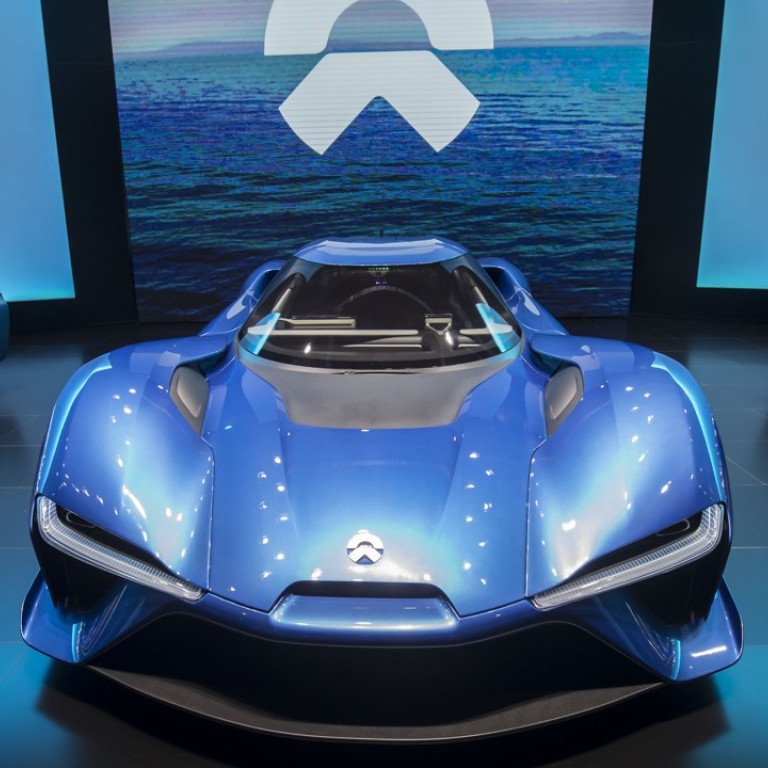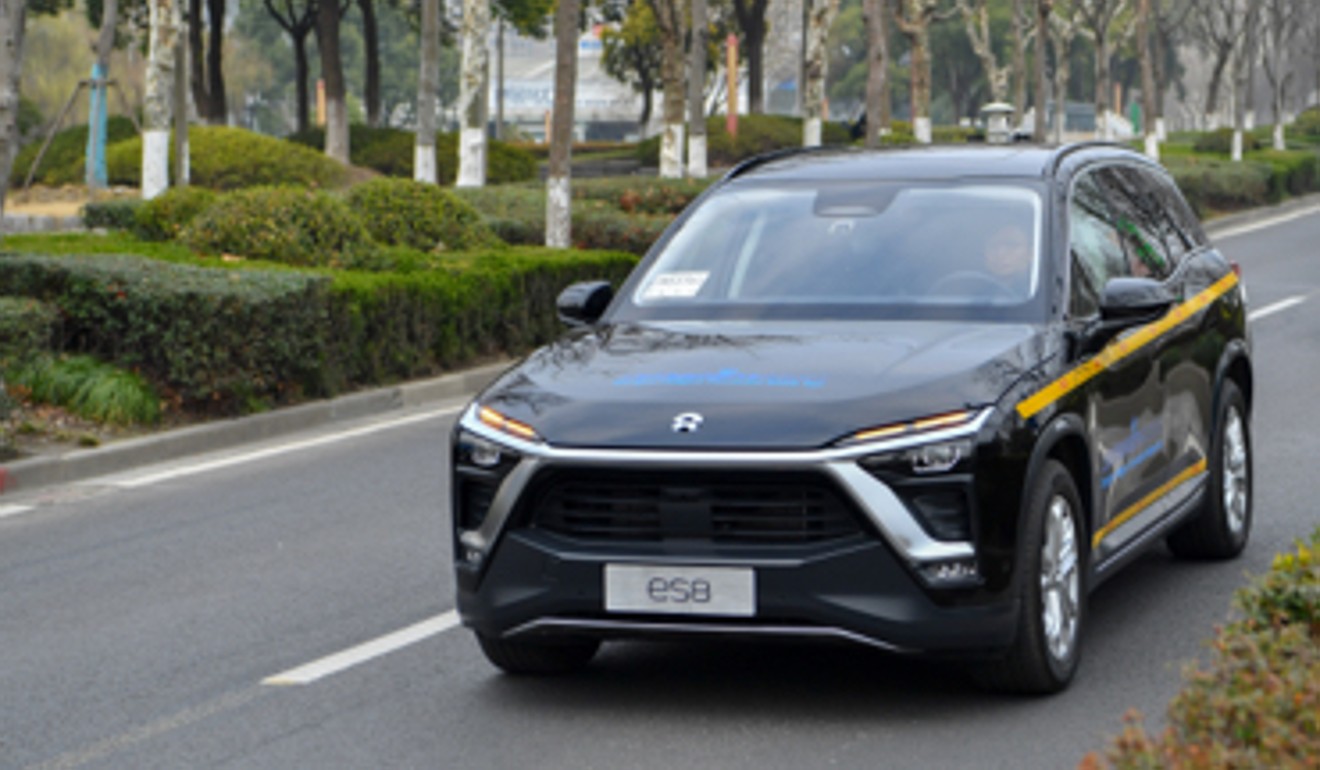
Tesla challenger NIO and car giant SAIC given green light to road test autonomous driving in Shanghai
NIO, backed by Tencent Holdings, Baidu and Xiaomi, given go-ahead for its 7-seater electric sport utility vehicle, the ES8, while Alibaba partner SAIC gains licence for two models of its smart intelligent car, the MG iGS
Electric vehicle start-up NIO – already being considered by some as a potentially serious challenger to market leader Tesla – and state-owned auto major SAIC Motor, have become the first two Chinese firms to be given green lights to road test autonomous driving of their “intelligent connected vehicles”, in Shanghai.
The city’s government has rubber stamped road testing licences to the two, becoming the first mainland city to issue such licences, as it aims big in winning a foothold in the emerging technology.
Based in the city, NIO is backed by technology giants Tencent Holdings, Baidu and Xiaomi and has been given the go-ahead for its seven-seater electric sport utility vehicle, the ES8, its first production model launched in December.
It was reported on Wednesday to have hired investment banks for an initial public offering by the end of this year in the US, the home turf of Tesla, with an eye on raising US$2 billion, according to a source familiar with the matter. That public listing would put its valuation at US$15 billion, the source said.
Also Shanghai-based, SAIC – a partner of e-commerce giant Alibaba Group in intelligent connected cars and best-known outside China as GM’s manufacturing partner – has been awarded licences for two models of its smart car, the MG iGS.

The testing is restricted to a designated area in the northwestern suburb of Jiading, covering some 5.6 kilometrers initially, but government officials said that route length will be expanded gradually in future.
“A really commercially ready automated vehicle couldn’t be made without the backing or coordination of traditional carmakers in China,” said Kevin Li, director of China market research at auto consultancy Strategy Analytics.
“Companies that can stand out from the competition will be the ones which can fully leverage the strength of traditional carmakers and technology companies,” he said.
Both the Shanghai and Beijing governments have made big strides in helping nurture the autonomous driving segment, he added, stressing the licence grantings are a boost to China’s progress in launching such technology.
Companies that can stand out from the competition will be the ones which can fully leverage the strength of traditional carmakers and technology companies
But still, it’s only the beginning of the trial which could take years to reach the ultimate stage of self-driving, Li noted.
Zhang Cheng, general manager of research and advanced technology department at SAIC Motor, said the open road testing marked a big step forward for the development of the technology in the country.
The whole idea of autonomous driving is shifting through the gears rapidly in China, luring technology giants including Baidu, traditional carmakers, and next-generation start-ups such as NIO.
Formerly known as NextEV, NIO was set up in 2014 and its shareholders include Singapore’s sovereign wealth fund Temasek Holdings, and Tesla’s second-biggest institutional investor, the Scottish headquartered asset management and investment trust giant, Baillie Gifford.
In December, it also added Toyota Motor’s China partner GAC Group to its list of allies as it seeks to secure access to manufacturing know-how. The same month, the start-up launched its ES8 at almost half price of Tesla’s Model X, in Beijing.

The rules in Shanghai require that a driver must sit behind the wheel and always be ready to take charge even it’s in self-driving mode during testing, as well as other formalities, procedures and eligibility of testing applications.
Shanghai applicants, for instance, need to demonstrate strong research and development capability and the ability to manufacture or test of vehicles or auto parts for intelligent connected cars, according to the trial rules, posted by the municipal government.
They also have to offer insurance coverage of at least 5 million yuan (US$788,600) for any traffic accident.
All test drivers must have at least 50 hours’ experiences in handling autonomous driving systems, and 40 hours of those must be on this particular type of road testing.
Effective until the end of 2019, the licencing rules have been collated by the city’s information and technology commission, its police force and public transport authorities.
Alibaba owns the South China Morning Post.

